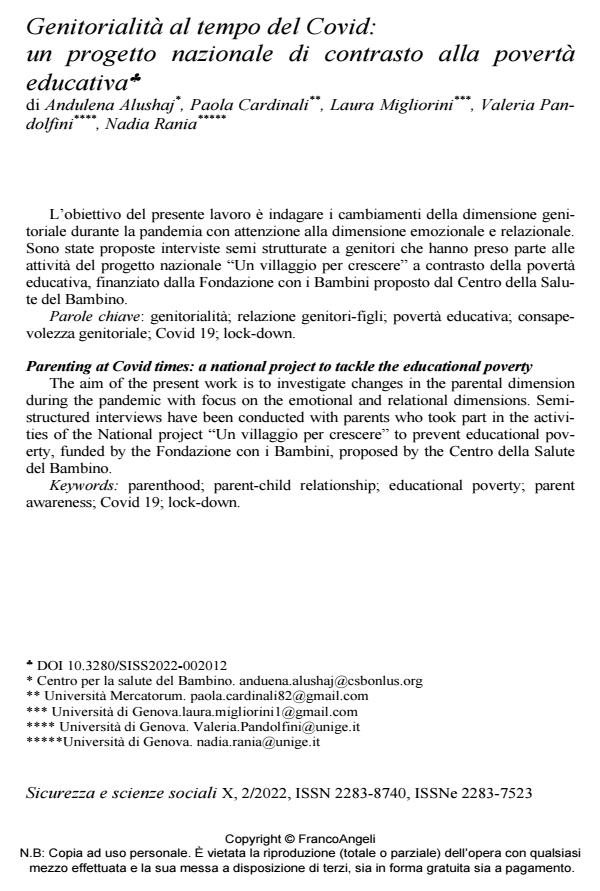Parenting at Covid times: a national project to tackle the educational poverty
Journal title SICUREZZA E SCIENZE SOCIALI
Author/s Andulena Alushaj, Paola Cardinali, Laura Migliorini, Valeria Pandolfini, Nadia Rania
Publishing Year 2022 Issue 2022/2
Language Italian Pages 14 P. 171-184 File size 252 KB
DOI 10.3280/SISS2022-002012
DOI is like a bar code for intellectual property: to have more infomation
click here
Below, you can see the article first page
If you want to buy this article in PDF format, you can do it, following the instructions to buy download credits

FrancoAngeli is member of Publishers International Linking Association, Inc (PILA), a not-for-profit association which run the CrossRef service enabling links to and from online scholarly content.
The aim of the present work is to investigate changes in the parental dimension during the pandemic with focus on the emotional and relational dimensions. Semi-structured interviews have been conducted with parents who took part in the activ-ities of the National project "Un villaggio per crescere" to prevent educational poverty, funded by the Fondazione con i Bambini, proposed by the Centro della Salute del Bambino.
Keywords: parenthood; parent-child relationship; educational poverty; parent awareness; Covid 19; lock-down.
Andulena Alushaj, Paola Cardinali, Laura Migliorini, Valeria Pandolfini, Nadia Rania, Genitorialità al tempo del Covid: un progetto nazionale di contrasto alla povertà educativa in "SICUREZZA E SCIENZE SOCIALI" 2/2022, pp 171-184, DOI: 10.3280/SISS2022-002012